LOGIN |
meet our membersCelebrating WHO's 2020 Year of the Nurse & Midwife
Erika Maria Monteiro Santos Erika's entire career has been spent in oncology and genomics, first working in a chemotherapy center before transferring to clinical research. Erika continues her work in genomics as an advanced practice nurse in the Genomic Medicine Service division of Hospital Beneficencia Portuguesa de Sao Paulo. The hospital has more than 1000 beds, and the oncology area is integrated with genomic medicine. In her daily work, she offers genetic counseling services, discusses test results with the clinical oncology team, and serves as a reference for clinical nurse specialists in matters related to genetics and genomics care. In addition to this work, she coordinates an oncology nursing course at a private university in Brazil. Her educational background to support this work includes a degree in Nursing (1998), Master of Science (2003), and a PhD (2008). Erika was first drawn to nursing by the need to solve complex problems. She states that, “A nurse has a unique view on care and can contribute to improved health of individuals, families, and communities. This year was challenging! Because of the pandemic, we need to reinvent care, reorganizing processes and priorities.” Erika believes that ISONG has strengthened the participation of nurses from other countries and that diversity is an important factor that can further strengthen the organization. She also thinks that the “biggest benefit of participating in ISONG is the sharing of experiences and the possibility of developing collaborative projects.” In the future, she would like to see ISONG collaborate more closely with other national genetic nursing societies to structure a model like that of the International Council of Nurses. She believes that, “there can be an exchange of experiences to strengthen genetics and genomics in different countries.” Erika hopes to contribute to the spread of genomics among nurses worldwide. Some of Erika’s most recent accomplishments include her role as the current President of the Brazilian Nursing Society in Genetics and Genomics (SBEGG). SBEGG recently held their 5th meeting and Erika states “it was a high-quality meeting with discussions that will have an impact on nursing care.” SBEGG’s activities for the dissemination of genomics in nursing practice are supported by the Federal Nursing Council. Erika also serves as Brazil’s representative in the Global Genomics Nursing Alliance.
Becky Kronk Becky Kronk, PhD, MSN, CRNP, FAAN, CNE, ANEF, is the Associate Dean for Academic Affairs and Associate Professor of Nursing at Duquesne University. With experience in bedside nursing, home health care, staff development, nursing education, and as a nurse practitioner, Becky brings a wealth of knowledge and experience to her current role as an administrator, faculty member, and researcher at Duquesne. Becky credits her work as a Pediatric Nurse Practitioner at the Child Development Unit of Children’s Hospital of Pittsburgh as her first passionate introduction to genetics. In caring for families and children with developmental disabilities, she witnessed the outcomes associated with genetic conditions firsthand. As part of her work, she even helped to establish the first nurse-led interdisciplinary Fragile X Center in Pittsburgh. Becky carried that experience into her research career and has conducted several studies on the sleep patterns of children with Fragile X syndrome and developmental functioning of children in relation to the “gray zone” alleles. In addition to this important work in nursing and genetics, Becky has many accomplishments we can celebrate including her inductions as a Fellow in the American Academy of Nursing (2018) and Fellow in the National League for Nursing’s Academy of Nursing Education (2020), recent funding from the Edith L. Trees Charitable Trust for STAGES II—A Theater Program for Youth with Disabilities, and election as our incoming President. When asked what the Year of the Nurse and Midwife means to her, Becky says: “I think the history of nursing has been overlooked and therefore the image of nursing has had a very uphill battle for recognition.” Becky further states that ISONG creates a unique intersection of nurses from all cultures and backgrounds that can help increase this recognition in 2020 and beyond. She adds, “ISONG truly is an ideal platform where nurses can be recognized as leaders whether at the bedside, clinic, research lab, or classroom.” Her experience as a member and leader in ISONG has further fueled her passion for genetics which is evident in all areas of her work. Her current focus is building genetic education in nursing curriculum and creating a greater awareness on the role nurses play in genetics and genomics as clinicians, researchers, and educators. As for her upcoming tenure as our President, Becky says: “I think ISONG has a very strong future both fiscally and in membership talent and strength. Going forward I want to strengthen all three legs of the stool – nursing research, practice, and education. We need to be ever mindful of our international members. We also must embrace those nurses who are not genetic experts but are on the fringes of genomics and want to learn more. Where do they go? They should view ISONG as a collegial resource.”
Anndra Dumo, MSc, MA, BSN, RN, RM, has a lifelong passion to care for others that has brought her to an incredibly unique and global career in nursing. Anndra has hands-on experience as a clinical nursing instructor in the Philippines, ER nurse and infection control practitioner in Saudi Arabia (to help control MERS-CoV, a respiratory virus not unlike COVID-19), and most recently, a PhD student at the University of Eastern Finland. Anndra first became interested in genetics when, as a clinical instructor, she and her students observed different responses to treatment regimens among cancer patients. She has carried this curiosity with her throughout her career and, upon her arrival to Finland, completed a course in cancer genomics. This course further sparked her interest in genomics and became the center of her PhD dissertation project, which is to develop a web-based nursing education program teaching genetics and genomics to nursing students. When asked how she first got involved with ISONG, Anndra credits her supervisor, Professor Katri Vehviläinen-Julkunen. Since joining ISONG, not only has Anndra been an active member of the Global Membership Committee, but she was also one of the first ISONG Student Correspondents in 2019! She says, “The program offered me the opportunity to travel to Texas, USA, and meet nurses who are experts in the field of genomics. I learned a great deal about their research and careers and have gained many friends and mentors.” Anndra says of ISONG, “Regardless of your background, as long as you are interested in the field of genomics, ISONG provides a warm welcome and conduit to meet highly enthusiastic nurse scientists and supportive mentors.” Of the Year of the Nurse and Midwife, Anndra says, “Year 2020 teaches us how important our role as nurses in society is. The pandemic era has shown the world how passionate we are in our profession and that we are highly dedicated to giving our service for the sustainability of a healthy society.” Anndra has many noteworthy accomplishments that we can celebrate, but most recently, she, along with her mentors and fellow ISONG members, published a randomized controlled trial protocol on the effectiveness of web-based genomics nursing education intervention for undergraduate nursing students in the Journal of Advanced Nursing. The published article can be accessed at http://dx.doi.org/10.1111/jan.14477. Anndra plans to continue training in the field of nursing genomics, increase her research collaborations, and obtain genetic/genomic laboratory experience. She also hopes that someday, when the pandemic resolves, an ISONG Congress can be held in Finland! Cheers to Anndra and all of our nurses along the spectrum of their career path. Thanks for all you do.
Hudson Santos, PhD, RN, grew up in Brazil, where his journey into nursing started early in life. Not only was his mother an LPN, but his uncle was the director of a hospital, so Hudson spent a substantial amount of time in healthcare settings. Hudson says, “When my mother didn’t have someone to watch me, I would go to her work with her. I learned to dream about being a nurse then.” In nursing school, Hudson received a scholarship to work on a research project with one of his professors and knew right away that he had found his calling. He worked clinically for a time, but ultimately went back to school to earn his PhD at the University of Sao Paulo, Brazil. Hudson has experience as a visiting scholar at the University of British Columbia, Vancouver and University of North Carolina (UNC) at Chapel Hill, as well as postdoctoral training from Duke University. He is now a tenure-track Assistant Professor at UNC Chapel Hill School of Nursing. Hudson’s program of research evaluates how early life stressors interact with the genome and affect perinatal and child neurodevelopmental outcomes in high-risk populations, as well as across socioeconomic status levels and racially, and ethnically diverse communities. Hudson recently received his second NIH grant entitled “Placental Origins of Positive Child Health.” In this study, he and his team are exploring multi-omic (DNA methylation, mRNA and microRNA levels) mechanisms that indicate in utero programing of positive health in children born extremely premature. Hudson’s research also aims to prevent or minimize neurodevelopmental impairment through precision health approaches and sustain well-being in children, despite their early life exposure to adversity. He is actively developing the HEalth Resilience and Omics Science (HEROS) Hub, which will focus on the identification of both protective and risk factors and genetic/genomic mechanisms that can affect the child neurodevelopmental trajectories. Hudson first became involved with ISONG through the website. At his first ISONG Congress, Hudson says he immediately felt welcomed and at home! When asked about the Year of the Nurse and Midwife, Hudson says: “I am glad that 2020 is bringing greater visibility to nursing... especially during the pandemic. More than ever, we have all witnessed the importance of nurses to keep our society healthy and well.” He also hopes this may bring further integration of nurses across the U.S. and internationally to ISONG. In addition to his incredible work as a nurse scientist, in his free time, Hudson enjoys woodworking and small engine repairs. Thank you, Hudson, and all of our community members, for your incredible work in nursing and omics.
Kelley Baumgartel With August being National Breastfeeding Month, we would like to highlight ISONG member Kelley Baumgartel, PhD, RN. Kelley is an Assistant Professor at Duquesne University School of Nursing where she not only has an active program of research but also teaches genetics to the undergraduate nursing students. She is the founder/president of the first non-profit human milk and data repository, the Human Milk Science Institute and Biobank. The objective of the biobank is to provide human milk samples, maternal saliva, and associated data to scientists in a variety of fields (https://humanmilksamples.org/). Kelley’s experience as a pediatric and neonatal ICU nurse led to her observation of a variation in milk volume and physical characteristics. She also noticed that some infants, despite receiving exclusive human milk feedings, developed necrotizing enterocolitis (NEC), a devastating and deadly gastrointestinal infection. In her PhD program at the University of Pittsburgh, she found that maternal genetics may contribute to milk composition variation. As a scholar in the school’s genomics training program (Targeted Research and Academic Training of Nurses in Genomics, PI: Yvette Conley), Kelley was provided with structured laboratory training and research-intensive learning opportunities needed to build her program of research, which requires molecular platforms. She explains that, “My work lends itself to low-risk potential nursing interventions. One example is that milk composition during the daytime is different than milk composition at night. Melatonin is increased in milk during nighttime hours, which helps infants attain a daytime/nighttime sleep schedule. This finding informs neonatal nursing care protocols, including the administration of time-matched milk (milk that is administered to the infant was previously pumped by the mother at the same time).” Kelley first became involved in ISONG during graduate school. As a student, she received a grant from ISONG to examine the methylation of DNA from milk cells. She served as a member of the research committee and continues to network with this specialized group of nurses. She states, “As I progressed through the PhD program, I learned that many people were unaware that nurse scientists we able to perform molecular research. The ISONG community was a reminder that I am not alone in my program of research, which requires multiple molecular platforms.” In celebration of National Breastfeeding Month, Kelley wants to share the following: “The breast milk mothers express is made specifically for their baby. It is personalized! For example, if a mother delivers prematurely, that “preterm” milk is different in composition than milk expressed by a mother with a healthy term infant. Preterm milk is higher in immunofactors that help high-risk vulnerable infants with protection via breast milk. Additionally, breastfeeding mothers who get the flu (and COVID!) make antibodies that are present in their milk, which provides further protection for the infant. There is also evidence that shows a dynamic relationship between infant and milk composition. For example, an infant who has an upper respiratory infection “talks” to the mammary gland via transfer of infant mucosal secretions that are introduced to the breast via areolar milk ducts. In response, the breastfeeding mother increases protective immunofactors, including immunoglobulins and other important milk components.” Finally, when asked what the ‘Year of the Nurse’ means to her, Kelley says, “It’s about time! Nurses are an integral part of the healthcare team and now more than ever, the public understands this. As a nurse scientist, the declaration of 2020 as the Year of the Nurse is an opportunity to teach the public (and remind all nurses) that nursing is its own discipline, as we are not an extension of medicine. Like many others, I celebrate nursing as both an art and a science.” Thank you, Kelley, for your passion and dedication to the future of nursing science.
Dr. Gigi Lim is a senior lecturer and mid-career researcher in the School of Nursing at the University of Auckland in New Zealand. Gigi holds a Bachelor of Science in Nursing and Midwifery, a postgraduate diploma in education, a Master’s degree in Health Sciences, a Graduate Diploma in Sciences (major in Pharmacology), and a PhD in Nursing. Her extensive nursing portfolio includes experience in surgical, medical, pediatric and neonatal nursing, public and mental health, spinal cord injury and rehabilitation, and cardiac nursing. Gigi has nursed in the Philippines, United States, and Auckland. Gigi’s global experience in nursing and science informs her career as a lecturer and researcher. Above all, she is a passionate educator with a teaching portfolio that has included educating nursing students in anatomy and physiology, pathophysiology, microbiology, obstetrics and gynaecology, genetics, and pharmacology. In particular, Gigi is dedicated to educating nurses in the principles of pharmacology as applied to medication management and was instrumental in developing a curriculum to prepare New Zealand nurses for prescribing privileges. Gigi’s research includes investigating nurses as learner and emergent prescribers and comparisons between the prescribing education for nurses and the education programs of other nonmedical prescribers (midwives) and medical prescribers (doctors). Through this research and the teaching of pharmacology and therapeutics she developed an interest in genetics and genomics, particularly pharmacogenomics. Gigi’s interest in genetics and genomics led to participation with a developmental origins of health and disease group focused on genetic and genomic underpinnings of non-communicable diseases. Her involvement in this group brought Gigi to her first ISONG Congress in 2014. Gigi immediately saw ISONG as a unique organization that represented nursing in the genomic era with important resources, credibility, and expert members. Gigi says, “The first ISONG conference I attended confirmed my perception that there was indeed very little teaching time allocated to genomic sciences in nursing. These issues were reflected in my conference report, and from this a school wide dialogue started with the Head of School and the Undergraduate Directors of Nursing. This led to an increase in genetics and genomic education being allocated to teaching.” Visits from ISONG members Beth Pestka in 2019 and current ISONG president Professor Dennis Cheek in 2020 further showcased and raised awareness of the importance of genetics and genomics for the Faculty of Medical and Health Sciences at the University of Auckland. Gigi states, “This is a great achievement as their visits opened doors for us to start collaborating on genetic and genomic education and research through all the faculty. Through ISONG, visiting scholars have proved to be a successful approach in encouraging education and research collaborations in genetics and genomics at the University of Auckland.” For her work leading a project focused on medication management and people with intellectual disability, Gigi wasawarded the Chief Executive Health Excellence Award in 2016. Gigi, Professor Dennis Cheek and their collaborative group were recently awarded a $7,500 grant to investigate pharmacogenomics of psychotropic drugs and variability of responses by ethnicity. Gigi says of this work, “Many people still do not understand the translational benefit of pharmacogenetics or personalized medicine or the huge role genetics and genomics play in non-communicable diseases and their management. It is therefore more important than ever that nurses have a good knowledge of genetic and genomic sciences, not only as health care leaders, but also because health management of many interventions will require a solid knowledge of the role of these areas of our science. This calls for an increase in the education of nurses in New Zealand in the genomic sciences, which must be considered for all tiers of nursing education from the undergraduate level, post-graduate, and in continuing education.” Thank you to Gigi and all of our nurses for your dedication and passion to our science. Stay safe, friends.
Dr. John Merriman is currently in his third year as an Assistant Professor at New York University Meyers College of Nursing. Although now a talented nurse scientist, nursing is a second career for John. His first degree is in communications with minors in theater and music. After completing his first degree, John felt that he would still like to pursue some long-held interests. John says: “I always enjoyed my science classes in school and was looking for a way to integrate my interest in communication with science and health.” John eventually decided that nursing was the perfect way to bridge his interests and enrolled in the Masters Entry Program in Nursing at the University of California San Francisco (UCSF). After completing his nursing degree, John worked on a hematology-oncology unit where he provided supportive care to patients before and after intensive chemotherapy treatments. His work in oncology led him to complete an oncology clinical nurse specialist program at UCSF. During his masters program, John was exposed to cancer genetics and how genetic variations could influence cancer-related symptoms. These clinical experiences influenced his decision to once again return to school to obtain his PhD in nursing. John completed his doctoral education at UCSF under the mentorship of ISONG member Dr. Christine Miaskowski and Dr. Brad Aouizerat and a postdoc at the University of Pittsburgh under the mentorship of Dr. Catherine Bender and ISONG member Dr. Yvette Conley. John’s research focuses on understanding the role of genomic variations in cancer-related symptoms and how we might better identify patients at risk of greater symptoms and target therapies most effectively. He was introduced to ISONG during his postdoc and says of Dr. Conley: “Dr. Conley’s strong support for ISONG among her trainees has been a boon to the organization.” Like all of us, John’s work has been impacted by the COVID-19 pandemic. While continuing to manage his faculty position remotely, John is also working with NYU Langone Health as a coronavirus tester. Of his experience, John says: “My experience with COVID-19, which initially seemed unrelated to oncology symptom management, has broadened my perspective about risk for poorer outcomes. Particularly, comorbidities seem to play a role in worse outcomes for both patients with COVID-19 and patients with cancer, perhaps through chronic dysregulation of inflammation-related pathways.” As a nurse living and working in New York City, which has been severely impacted by coronavirus, John has a new appreciation for the role of nurses in public health, especially to screen for the disease. We thank you John and all nurses that are using their clinical, teaching, and research skills to face the global challenge of COVID-19.
Dr. Jeanne Murphy is a Certified Nurse-Midwife and Assistant Professor of Nursing at George Washington University. Jeanne has been a practicing nurse-midwife for over 25 years. After 15 years of full time experience, she started teaching in a nursing program, and realized that she wanted to expand into nursing education and research. At that point she earned her PhD and completed a postdoctoral fellowship at the National Cancer Institute (NCI). Jeanne says that she learned about clinical cancer genetics and ISONG during her postdoctoral training at NCI. This year, she has built upon that experience by completing the City of Hope Intensive Course in Clinical Cancer Genomics. Jeanne says of these experiences, “I think the most important thing I learned is actually something pretty basic - that taking a careful family history, even in primary care, is the best way to screen everyone for genetic issues. The patterns of inheritance for genetic cancer syndromes can be very subtle! So, it’s important to teach patients about how to talk to family members. In my role as a nursing professor, I am including more and more on genomics in my teaching. It is an essential part of our care.” Above all, it is important to Jeanne that she continues to practice and provide one-on-one care to women in the clinic. Clinical work drives her passion for improving women’s healthcare directly through her practice and personal interactions, and indirectly through her research and education of future generations of nurses. When asked about the Year of the Nurse and Midwife, Jeanne says, “This is an opportunity to celebrate the essential roles of midwives and nurses in healthcare. We are the frontline workers in healthcare and deserve respect and support from society.” Both Jeanne’s frontline work and her work with students has been impacted by the ongoing global pandemic. Jeanne says she is currently working additional clinical shifts, doing online simulation with students, and “catching babies while covered in a mask!” Jeanne demonstrates clinical excellence, outstanding scholarship, and professional achievement and has been recently inducted as a fellow in the American College of Nurse-Midwives. She also loves Orange Theory Fitness and is learning Irish step dancing! A big thank you to Jeanne and nurses and midwives worldwide for all you do.
Emma is an Associate Professor in Genomic Healthcare at the University of South Wales. In addition to her involvement in ISONG, Emma is also a founding member of the Global Genomics Nursing Alliance (G2NA). Early in her career, Emma worked as a research scientist in human genetics focused on molecular biology, gene mapping, and identification. With her group at Newcastle University, she identified the first gene associated with Cornelia de Lange syndrome. Emma also worked with the UK Cornelia de Lange patient group helping families understand the potential implications related to the identification of genes associated with the syndrome. Of her work with patients, Emma says, “I heard time and time again from parents about the challenges they faced in getting a diagnosis or accessing knowledgeable care for their child because the condition is so rare.” Her experience with the patient group led Emma to switch gears to focus on genetic and genomic education. In 2005, she joined the Genomics Policy Unit at the University of South Wales. Emma now primarily works with nursing and midwifery professions to mainstream genomics across health services through health professional education, engagement, and service development initiatives. One initiative that Emma is particularly proud of is ‘Telling Stories, Understanding Real Life Genetics’ (www.tellingstories.nhs.uk), a free online genetics teaching and learning resource. The site contains a variety of tools and activities to support genomics education including more than 100 written and video stories from patients, family members, and healthcare professionals as well as people with, at risk of, or caring for someone with a genetic diagnosis. Currently Emma is working on expanding G2NA, which now has participants from more than 25 countries (https://g2na.org). The vision of G2NA is to serve as a unified international voice for advancing and integrating genomics into nursing practice. While there is important overlap in the goals of G2NA and ISONG including improving health through genomics, G2NA targets all nurses irrespective of role, academic preparation or clinical specialty rather than those who work as genetic/genomic nurses or counselors. G2NA has been working with the Wellcome Trust to deliver the “Nursing, Genomics and Healthcare” conference in April 2020, however due to current world events, the conference has been postponed. In the meantime, G2NA continues to hold quarterly webinars and work on testing and refining tools to support the integration of genomics into nursing. Although Emma is not a nurse, she is a nurse champion and has been a member of ISONG for 15 years, served as a Board member, and has been a member of several committees. About ISONG, Emma says, “I want more people to know about ISONG and the great support, cooperation and collaboration that members offer freely to each other. I look forward to seeing ISONG continue to grow and sustain its membership, particularly non-US. The organization has a great foundation and history, and the future is bright.” Emma’s background in human genetics has enabled her to understand the clinical utility of genomic applications within healthcare and recognize the role that nurses and midwives can and should play. Emma’s future plans include continuing to develop her program of research both within the UK and internationally, particularly in relation to ASIGN (a tool for the Assessment of Strategic Integration of Genomics across Nursing). Emma says, “Genetics/genomics is my everyday. Not only do I undertake research, but I get to teach our future nurses and midwives the genomics that they will need in practice. Within the UK, services and patient pathways are being completely redesigned around genomics. As a result, nurses will play a central role in offering genomic tests and providing care and treatments that are based on genomic information.” Emma is a passionate advocate for the role of nurses and midwives within genomic healthcare. With 2020 being the ‘Year of the Nurse and Midwife’, Emma thinks it is a “perfect time to shine a light on both genomics and nursing and help make other nurses and the wider public aware of why genomics is so relevant to practice.” To connect with Emma, find her on Twitter @emmattonkin & @USW_GPU or at https://genomics.research.southwales.ac.uk/
Katie is a Registered Nurse and Postdoctoral Fellow at the National Institute of Nursing Research and the Henry M. Jackson Foundation for the Advancement of Military Medicine. Prior to nursing school, Katie completed a degree in biology and volunteered her time working with patients rehabilitating from traumatic injuries. This positive and rewarding experience was an important factor in her motivation to pursue a nursing degree. Following graduation from nursing school, Katie’s first nursing position was in a neurotrauma ICU. In the ICU, Katie observed that patients with similar injuries and demographics could have very different outcomes. Because of her biology background, she was aware that genetic and genomic variability could be contributing to the differences in her patients’ outcomes, as well as environmental and health-related factors. This experience motivated her to return to graduate school to obtain her PhD in nursing while studying traumatic brain injury (TBI). Katie’s predoctoral work focused on blood-based biomarkers of gene expression and proteomic changes related to inflammatory processes following acute mild TBI and blast exposure in active duty military personnel. As part of her postdoctoral work, she has expanded her focus to include both military and civilian populations in acute and chronic phases of mild TBI. In addition to gene expression and inflammatory proteins, she is also examining micro RNA, neuronal injury markers, and neuronal-specific exosomes. Katie says: “I’m especially excited about my work examining how these genomic and proteomic changes relate to long-term symptom clusters, including post-traumatic stress, sleep disorders, depression, and cognitive function. Many groups are working on advancing research in biomarkers of TBI, and it’s been amazing to see the progress in this field since I started my graduate work.” This month is ‘Brain Injury Awareness’ month. Katie informed us of the #ChangeYourMind public awareness campaign which brings together people living with brain injury, families, caregivers, researchers, medical professionals, and advocates to promote increased awareness of the seriousness of brain injury and provide resources. Katie says, “Many times brain injury, especially concussion, is not something tangible or obvious, and the seriousness of the injury may be overlooked, even though a subset of people develops lifelong symptoms.” ISONG has been a big influence in Katie’s career thus far. Katie became involved in ISONG shortly after starting graduate school, and she spoke with us about one of her first ISONG Congresses: “As an early PhD student, it was amazing to meet other nurses from around the world with an incredible knowledge and passion for their work in genetics. ISONG is such a supportive environment to collaborate and present work. I wouldn’t be where I am today if not for the support of my advisors and the wonderful people I’ve met through ISONG.” When asked about her hopes for the future of ISONG, Katie says: “I hope the supportive environment doesn’t change, and that it could even be extended to include collaborations and research initiatives among other groups and disciplines.” Katie has many recent accomplishments, including a publication from her predoctoral work and a 2020 NIH Fellow Award for Research Excellence (FARE). In her spare time, she enjoys hanging out with her husband, hiking with her dog, and reading. Her future plans include continuing to conduct brain injury and neuroscience research. When asked about the ‘Year of the Nurse’, Katie says, “Nurses bring a deep understanding of the impact of decisions on the delivery of care and what this means for patients, their outcomes, and their families. To me, nursing means working toward and advocating for the best outcomes possible for patients, and I hope the Year of the Nurse campaign brings greater public and interdisciplinary awareness of the impact of so many nurses’ contributions to patients and health care. Across many health specialties, nurses in particular are making important contributions to examining genetic and genomic factors together with demographic, clinical, and environmental data, and examining how this can impact therapies and improve patient care.” As we move throughout the year – our year - may we all celebrate how our work as nurse scientists contributes profoundly to improving the lives of many.
Susan is an Assistant Professor in the Department of Molecular and Human Genetics at Baylor College of Medicine and an active member of ISONG. As is the case with many members of our community, Susan did not take a direct path to nursing. Her early plans consisted of pursuing an academic career in her first degree, Spanish. After conversations with a friend about the multiple opportunities in nursing, she decided to change paths. Her background in the Spanish language has been an asset to her throughout her career. In the hospital, Susan communicates with patients and families daily in Spanish and has gained a deeper understanding of the language and culture. In addition, since 2001, Susan has been involved with a medical mission organization in Guatemala and has served on the Board of Directors for eight years. As far as ISONG goes, Susan has served as a leader within the organization as part of the Education, Nominating, and Global Membership Committees. When asked about ISONG, Susan says, “ISONG is a tiny gem of an organization and I speak about ISONG and careers in genetic and genomic nursing at every opportunity!” Susan adds, “I wish there was a greater understanding of ISONG as an inclusive organization with members who have extensive knowledge and experience in all aspects of care, education, and research regarding genetic and genomic health. ISONG is an incredible resource for each of us.” In addition to her role as an ISONG member, Susan has been working with patients with rare diseases for most of her nursing career. Her work has ranged from educating countless families, clinical staff members, nursing organization members, and students about rare diseases to coordinating Metabolic and Cardiovascular Genetics clinics. In 2004, thanks to funding by an international company based in Houston, Susan and her colleagues were able to offer a ‘Living with Congenital Heart Disease’ parent conference. The conference changed the trajectory of Susan’s career, leading to work in genetic community engagement. In 2006, Susan began the ‘Evenings with Genetics’ seminar series held at The Children’s Museum (www.bcm.edu/eveninggenetics). As part of this series, rare genetic diseases are frequent topics featuring both family speakers as well as geneticists and experts from multidisciplinary fields and clinics. The combination of personal experiences and clinical expertise from providers and researchers has made the ‘Evenings with Genetics’ seminar series dynamic and highly attended by parents, caregivers, interpreters, and medical, nursing, genetic counseling, and biology students. Susan says, “This series has enabled us to expand genetic and genomic outreach to conferences in regions without genetic services thanks to state funding and geneticists willing to share their time and talents.” In addition, Susan helped launch the Houston ‘Rare Disease Day’ event with over 35 rare disease organization booths, an ‘Ask the Expert’ session, and short seminars with geneticist speakers. Notably, this has become a much anticipated event which will be held again in 2021. “Helping to connect the dots for families and professionals has been my passion with regards to current information, benefits and risks of genetic and genomic testing, finding support and resources, and connecting with underserved families and communities. I love my work and my role as a nurse in connecting communities as well as demystifying genetic care, research, and career opportunities.” Outside of her accomplishments for the nursing and rare disease community, Susan recently received a ‘Women of Excellence’ Award from Baylor College of Medicine in 2019. In addition, Susan’s department at Baylor College of Medicine now has eight nurses, and Susan is leading the newly formed Division of Genetic/Genomic Nurses! When asked about something ISONG community members may be surprised to learn about her, Susan informed us that she loves to tap dance and volunteer as a horse-walker at a camp for children with special healthcare needs, many of whom have rare genetic disorders. As we move throughout this year - our year – may we all be reminded of what we are capable of and how we touch the lives of so many people.
Rare Disease Day Event, February 2016, Houston, Texas
Noopur is a 3rd year undergraduate nursing student at the University of Calgary in Canada. Prior to nursing, Noopur was a Biological Science major but didn’t feel passionate about her chosen career. During that time, Noopur was volunteering at a local hospital. Witnessing the difference nurses made for their patients inspired her. Noopur has a passion for helping people, and she realized that nursing would be an ideal profession through which she could do that, so she switched majors to pursue nursing. As part of her undergraduate training in nursing, Noopur has worked as an undergraduate research assistant for ISONG Global Membership Chair, Dr. Sarah Dewell. While working with Dr. Dewell on LINKAGE (an Online Educational Hub for Genetic/Genomic Nursing Education, Practice, and Research), Noopur’s interest in, and love for genetic nursing, was sparked. Importantly, Noopur has found that many undergraduate nursing students don’t know that genetic nursing exists. The only formal genetic education Noopur has received was from her previous degree, which speaks to how many students are uninformed of the importance of genetics in nursing education and practice. Noopur urges, “It is important that [nursing] students are made aware of organizations such as ISONG so that they can gain more knowledge and use it in their future practice.” In addition to kudos on her role as an undergraduate research assistant, ISONG celebrates Noopur’s wonderful achievements. Most notably she was recently accepted into the Dean’s list and has earned the Louise McKinney Post-Secondary Scholarship for academic excellence. When asked about something ISONG community members may be surprised to learn about her, Noopur informed us that she is multilingual and speaks five different languages! Her skills as a polyglot are not only incredible but also make her an asset to nursing and public health on many levels. In regard to the future of ISONG, Noopur said she hopes our community will soon become more recognized in countries outside of the United States, specifically in Canada. The contributions from ISONG, including the education it provides to nurses, is crucial in Canada. She says that if more Canadian nurses become aware of this organization and the importance of genetic nursing, overall health outcomes can be greatly improved. As for Noopur’s future specifically, she plans to gain hands-on clinical experience and pursue a master’s degree. Noopur is very passionate about combining her genetic knowledge and desire to reduce health disparities with a particular focus in her South-Asian community. We have no doubt that she will succeed in those areas. Throughout the progression of her undergraduate studies, Noopur’s perspective on nursing has changed quite drastically. She realized that a nurse is not just a person who works at a hospital and cares for the particular needs of patients but rather a leader who plays a huge role in policy change and patient advocacy. Noopur says: “Nursing to me is a passion to serve, care, and give to society. Nurses in the research field, clinical setting, or in the hospital all have the opportunity to improve health outcomes and make global impacts which is why this profession is so important.” This year, may we all look upon our chosen career with this same passion and drive. |
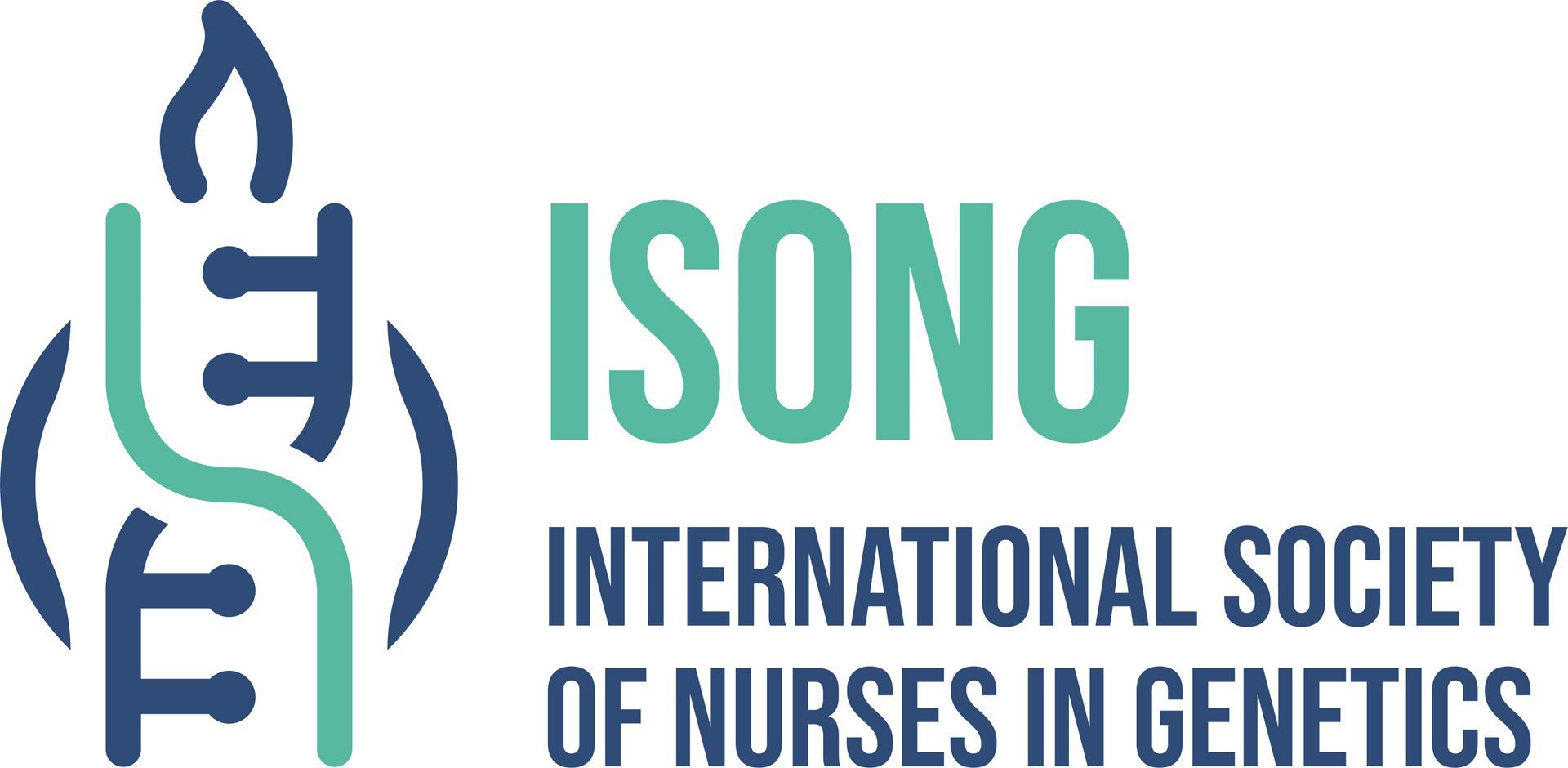
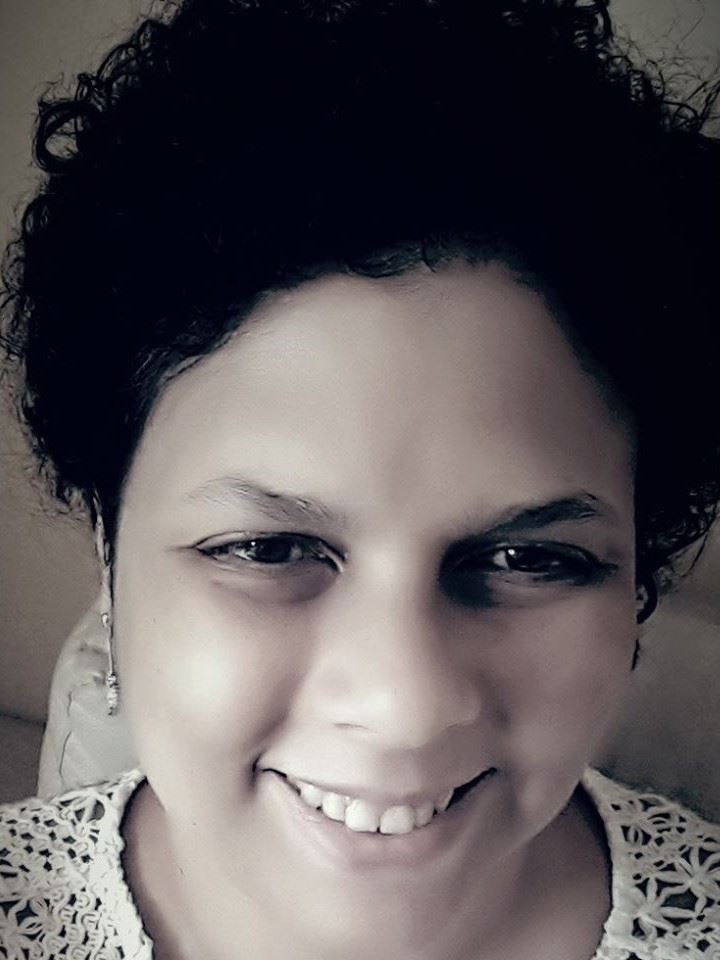
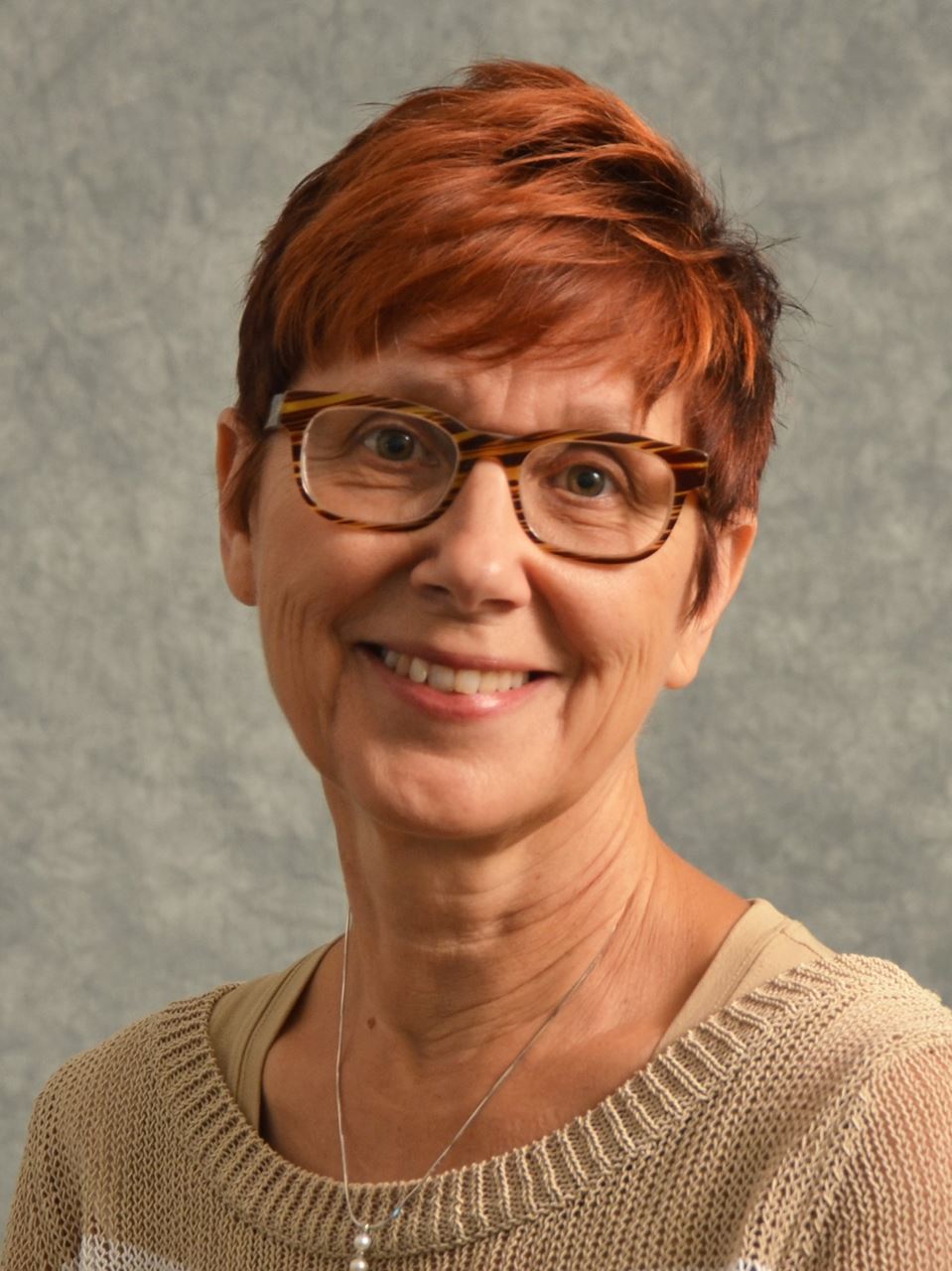
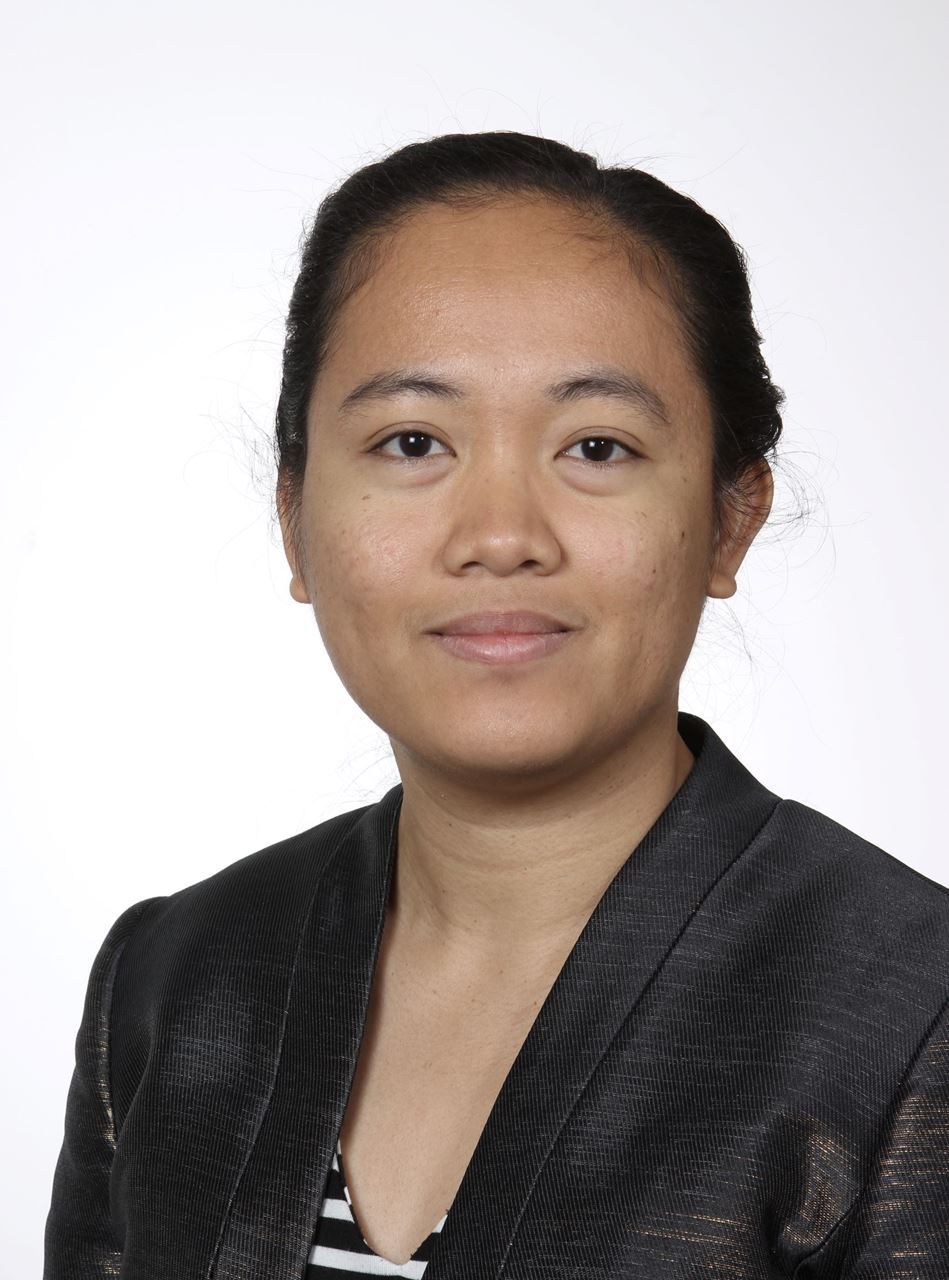 Anndra Dumo
Anndra Dumo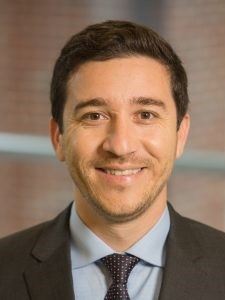 Hudson Santos
Hudson Santos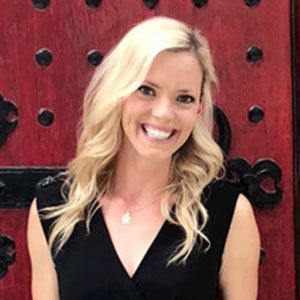
 Gigi Lim
Gigi Lim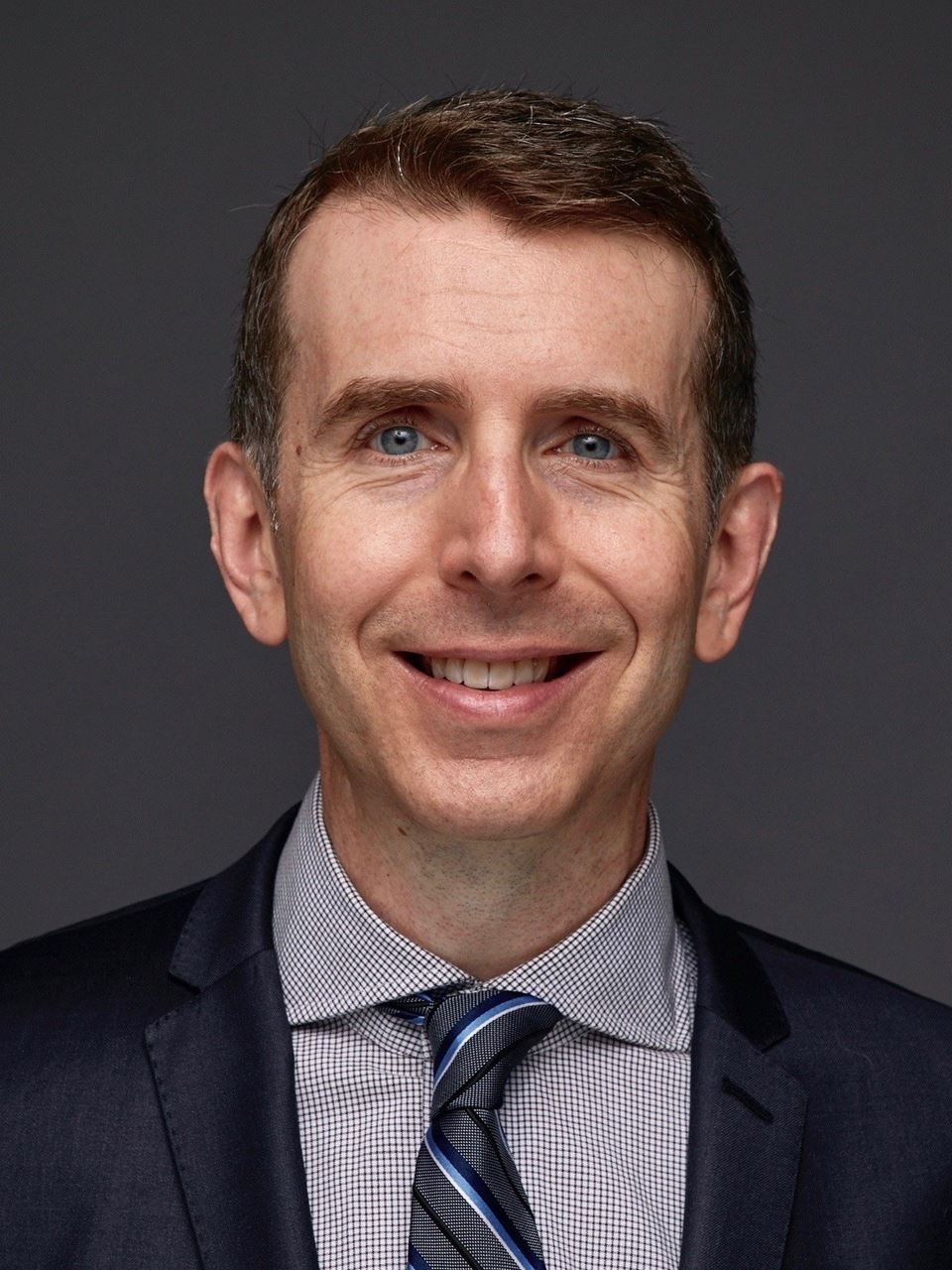 John Merriman
John Merriman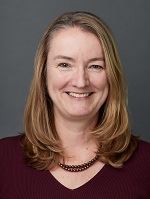 Jeanne Murphy
Jeanne Murphy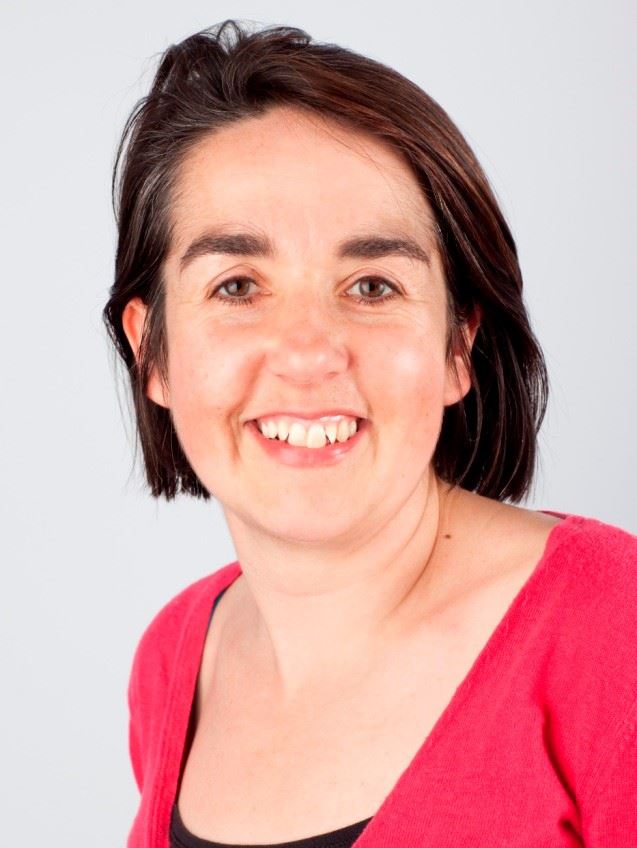 Emma Tonkin
Emma Tonkin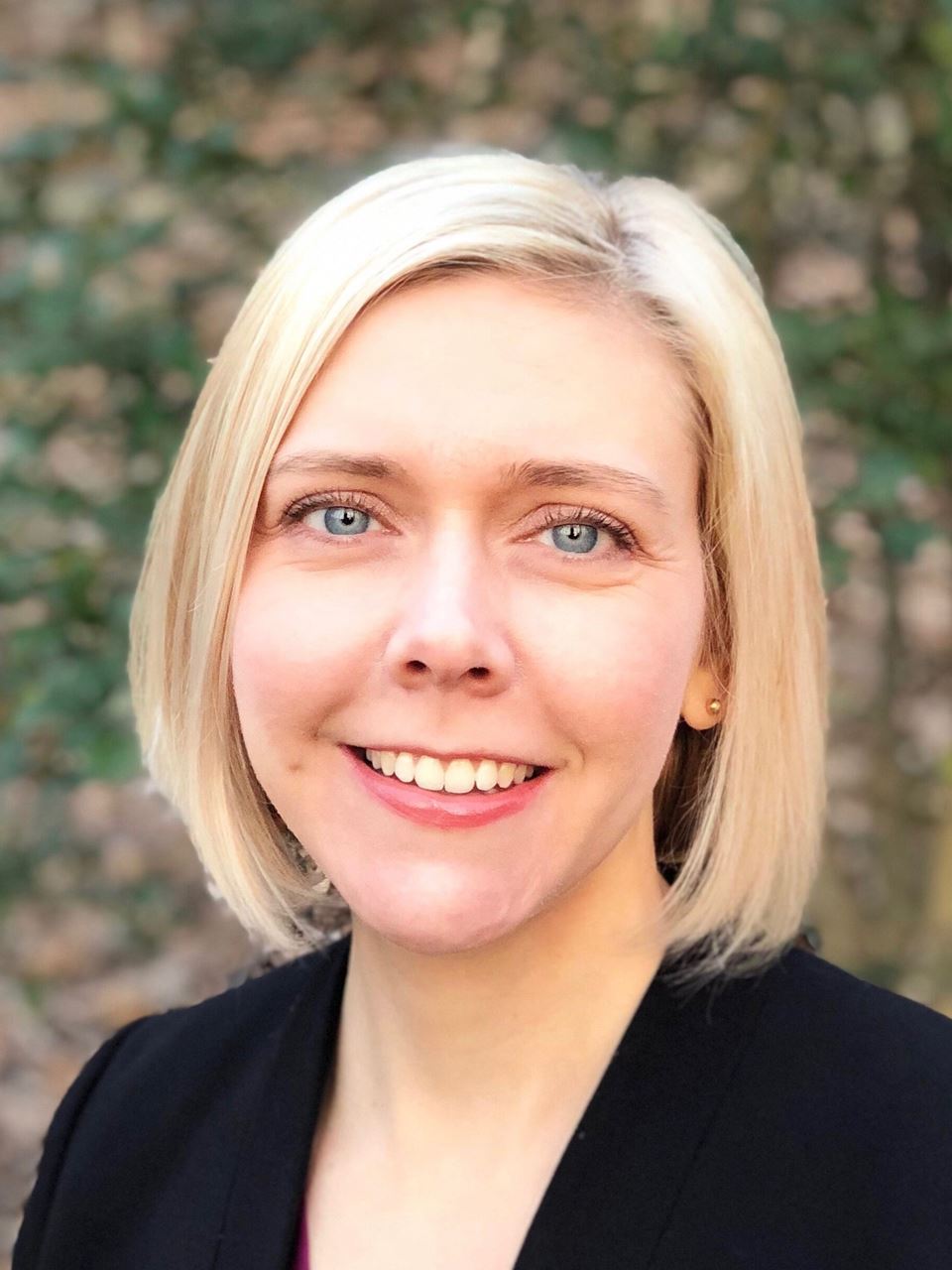 Katie Edwards
Katie Edwards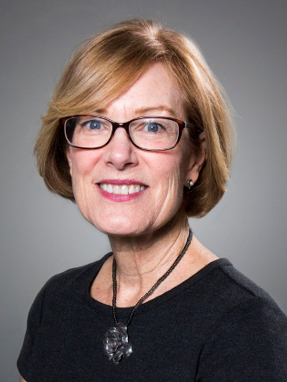 Susan Fernbach
Susan Fernbach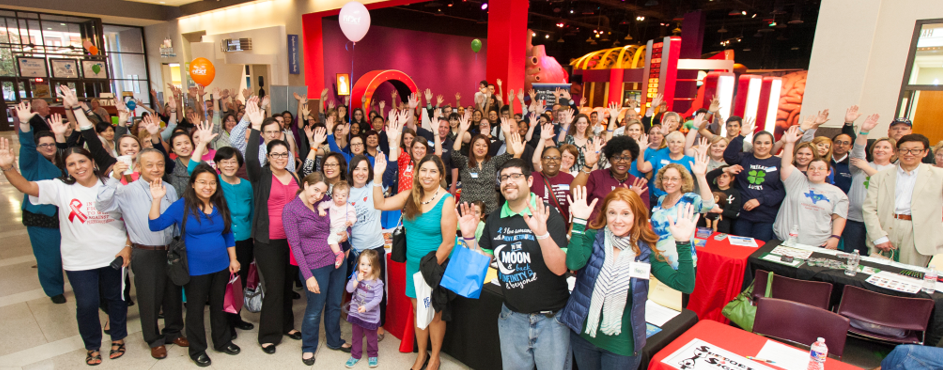
 Noopur Swadas
Noopur Swadas